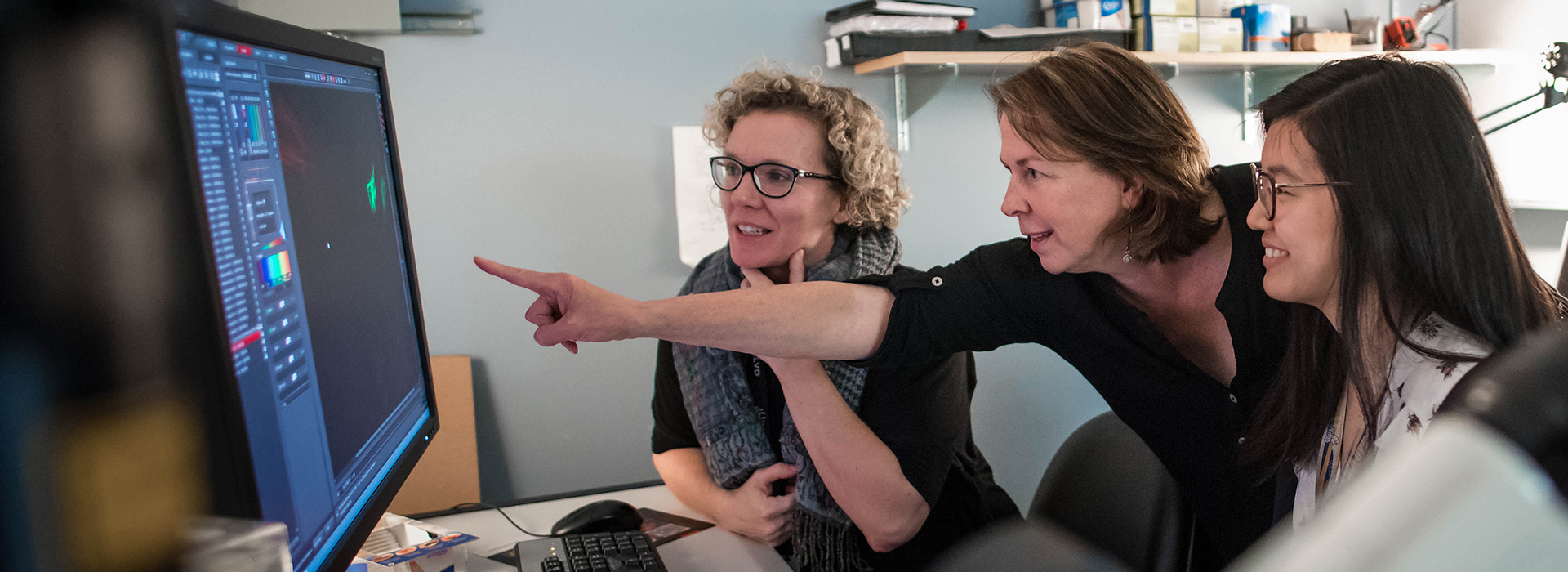Ranked among the world’s top medical schools with the fifth-largest MD enrollment in North America, the UBC Faculty of Medicine is a leader in both the science and the practice of medicine1.
Across British Columbia, more than 12,000 faculty and staff are training the next generation of doctors and health care professionals, making remarkable discoveries, and helping to create the pathways to better health for our communities at home and around the world.
Strategic Plan
Learn about the Faculty’s strategic plan.
Vision & Values
Watch our film and learn about the Faculty’s vision and values.
Indigenous Health
Learn about the Faculty’s commitment to helping improve health for Indigenous communities.
Leadership
Find a list of academic leaders and biographies.
Units
A directory of departments, schools and research centres & institutes.
Campuses
An interactive map of the Faculty’s locations across the province.
Facts & Figures
A list of key numbers in the Faculty.
Careers
Find career and volunteer opportunities located throughout British Columbia.
Contact
Find contact information for the Office of the Dean and other units.
Milestones & Discoveries
2017: Launch of the School of Biomedical Engineering to foster innovation, interdisciplinary training and technology transfer with industry.
2015: The largest MD class in British Columbia’s history graduates from UBC.
2014: UBC’s distributed MD undergraduate program marks 10 year anniversary
2009: Drs. Samuel Aparicio and Marco Marra are the first to decode the entire genome of a patient’s metastatic cancer.
2004: UBC launches its distributed MD undergraduate program – the first distributed medical education program in Canada.
2003: Dr. Marco Marra leads the first team to sequence the SARS genome, while Drs. Brett Finlay and Robert Brunham lead a successful international effort to find an effective vaccine against the disease.
2002: UBC creates a Midwifery Program – one of only four midwife training programs in Canada.
1999: Dr. Michael Hayden identifies the major gene underlying high-density lipoprotein (“good” cholesterol) in humans.
1995: Dr. Julio Montaner leads the development of Highly Active Antiretroviral Therapy, a treatment adopted as the international standard of care for HIV/AIDS.
1993: Dr. Michael Smith wins the Nobel Prize for his development of site-directed mutagenesis – a technique that allows the DNA sequence of any gene to be altered in a designated manner.
1 QS World University 2023 Rankings: 22nd in life sciences and medicine
Times Higher Education 2022 Rankings: 33rd in life sciences & 40th in clinical and health
